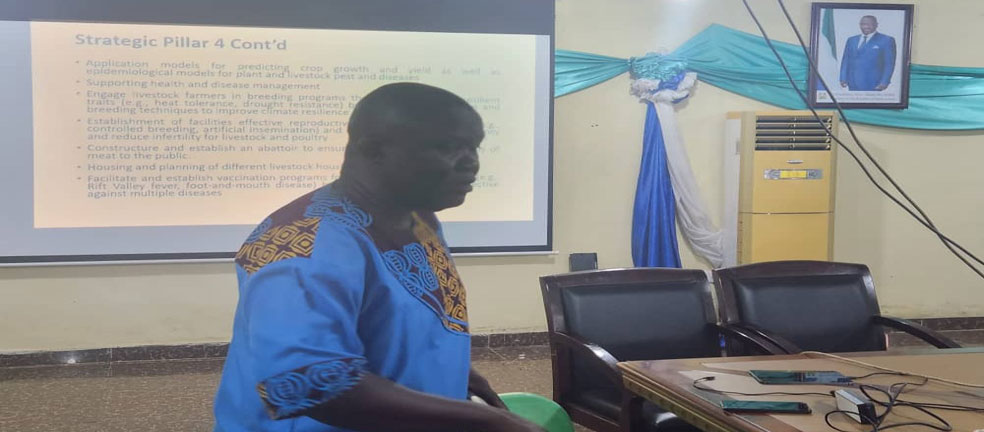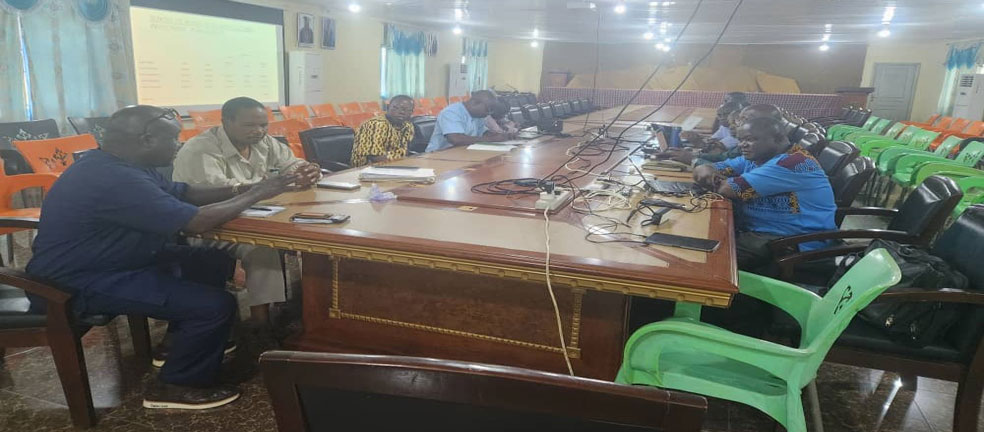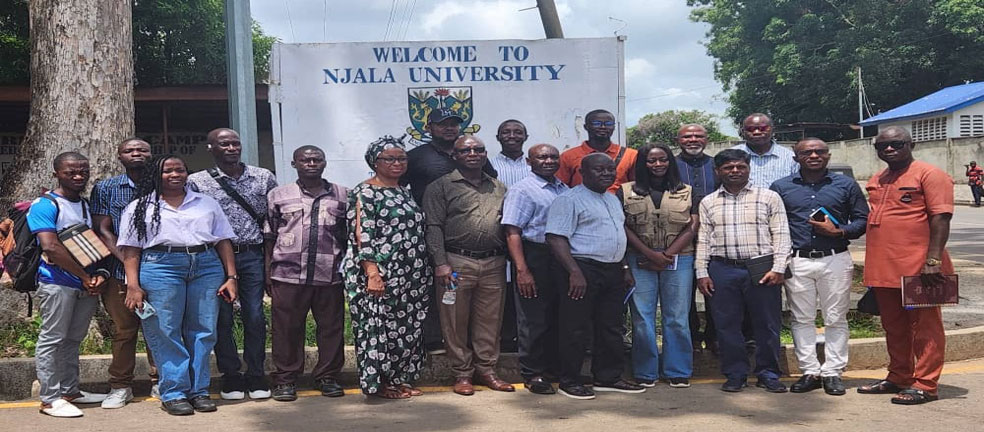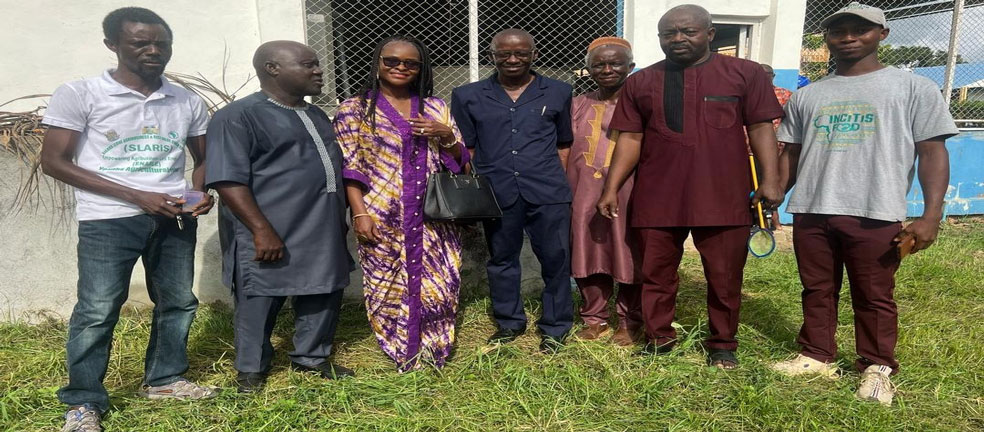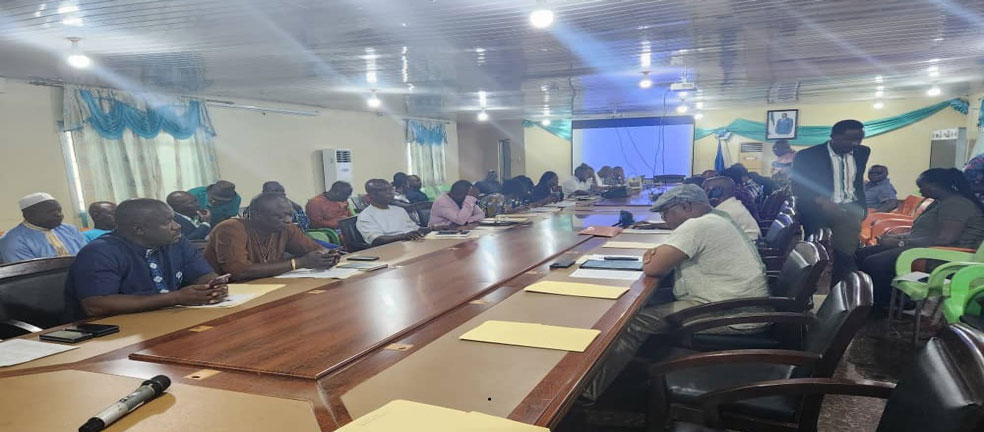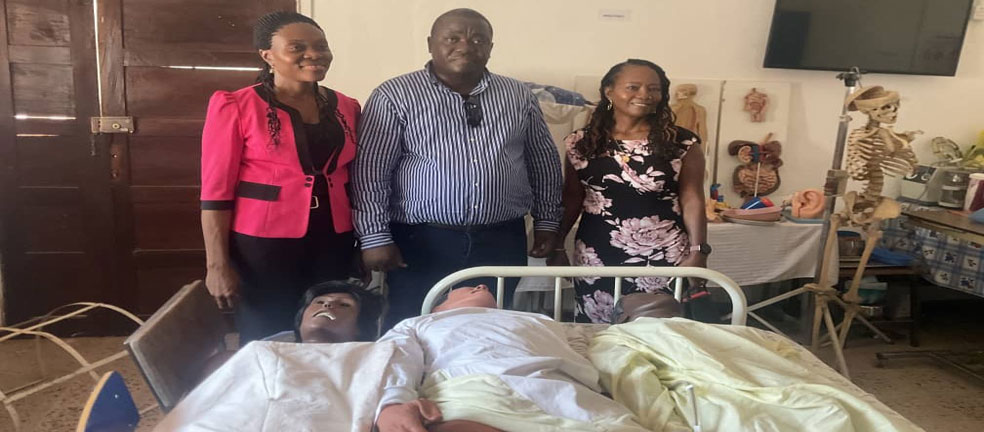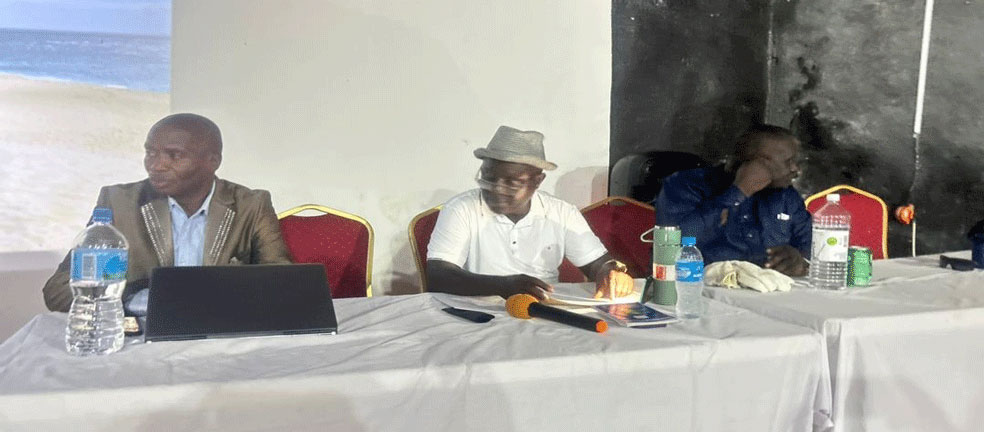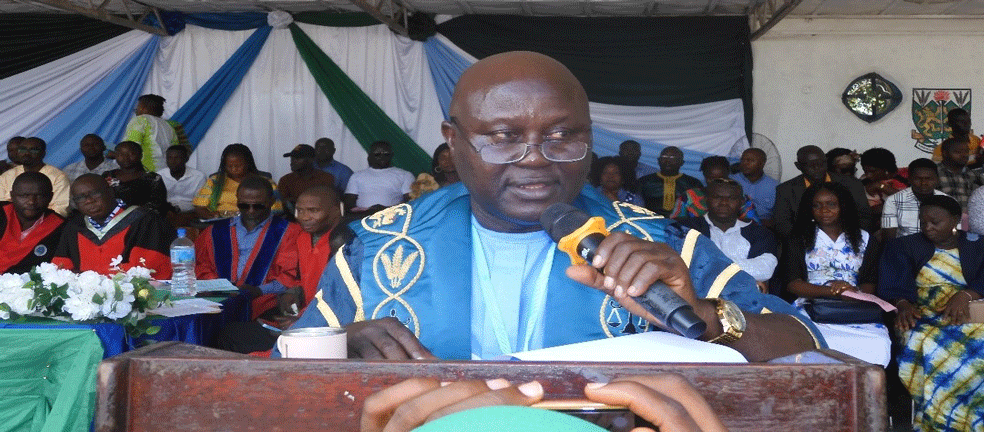Njala University Administration Revives Lower Nursery Farm for Year-Round Vegetable Production
Credit: Public Relations Assistant, Njala University (Ayuba Koroma)
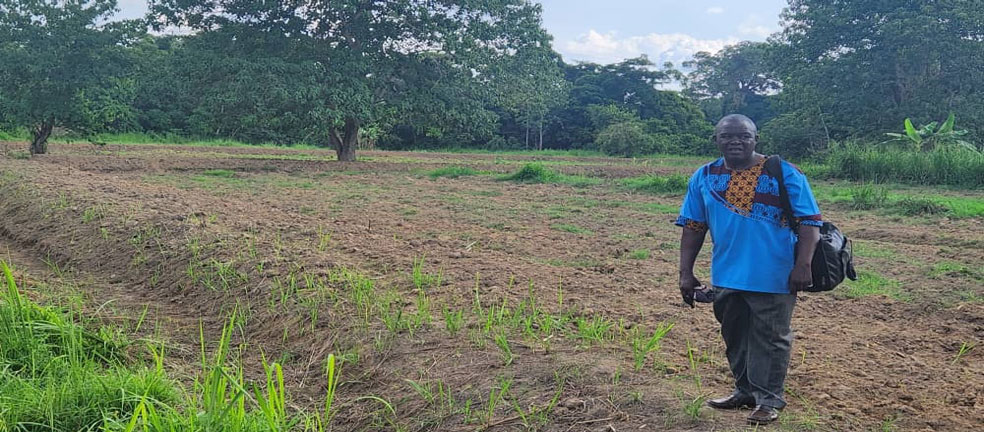
University Secretariat, Njala Campus – 16th May 2025— Professor Roland Suluku, Dean of the School of Agriculture and Food Sciences, has spearheaded the launch of a 13-acre vegetable production initiative at the university’s Lower nursery site. The project is part of the World Bank-supported Food System Resilience Project (FSRP), implemented through the Ministry of Agriculture, and aims to empower women and youth while boosting food security.
Speaking at the site, Professor Suluku explained that the initiative would provide hands-on training for students who would work alongside community members. “By the time our students graduate, they will have the skills to cultivate vegetables and create income opportunities for themselves and their communities,” he said. “This is about real-world learning and improving nutrition across Sierra Leone.”
He noted that the project includes vital infrastructure like boreholes and drip irrigation systems, which will allow for continuous vegetable cultivation throughout the year. The engineering department of the university is leading the construction of irrigation facilities to support this ambitious plan.
Professor Suluku emphasized the alignment of the project with the national Feed Salone strategy. “Vegetable consumption in Sierra Leone is limited. With this initiative, we want to grow a variety of vegetables—like tomatoes and cabbage—that are critical for human health and economic growth,” he said.
Associate Professor Philip Maada Pessima Mornya, Head of the Department of Horticulture in the School of Natural Resources Management, provided a historical overview of the site. He recalled that Lower Nursery was once a hub for rice and vegetable farming as far back as the 1970s, with Chinese assistance, before operations ceased due to the civil war.
Professor Mornya explained that he began efforts to revive the site in 2016, following a call by President Julius Maada Bio for universities to support national development goals. With funding from the African Union, the site saw renewed activity, including irrigation development and greenhouse construction.
Despite setbacks such as theft and funding interruptions, Professor Mornya remains optimistic. “This land has tremendous potential for year-round vegetable production. We’ve come a long way, and with continued support and commitment, this project can serve as a model for agricultural revival across the country,” he stated.
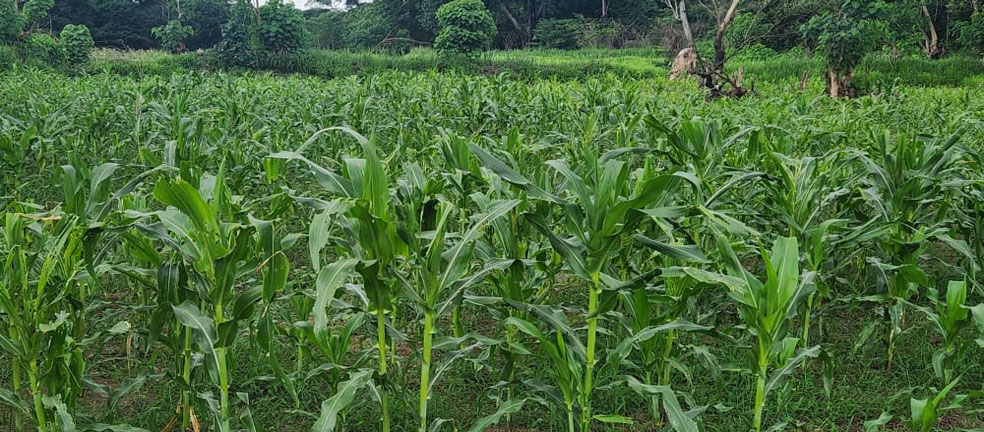
© Public Relations Unit, Njala University
- Log in to post comments



